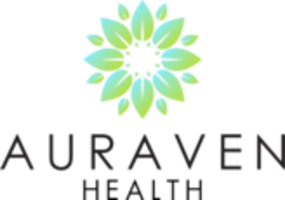
Managing employee burnout is an ongoing challenge for administrators, and the pandemic has only exacerbated an already pressing workplace issue. At the height of COVID-19, the Medical Group Management Association (MGMA) reported a combined 30 percent turnover rate among the operational and front office staff.
Today, as guidelines and policies persist changing to shield hospital revenue while accommodating patient needs, the medical billing staff experience further pressure on top of their daily stressors.
Many hospital managers struggle to determine what they can do to assist their medical billing staff and minimize factors that lead to burnout.
In this blog, we will offer guidance for managing staff burnout and share how Auraven can assist you with the Employee Retirement Income Security Act or ERISA Law.
Evaluate Staff Capacity
Look into the capacity of each individual and as a group. You can do this by averaging the weekly number of tasks and the hours needed to accomplish each task, then counterchecking your current staff's capacity.
For instance, if you have 25 medical billing staff working 40 hours weekly, that department has 400 hours of weekly capacity.
If you learn that your capacity is enough but discover a few of your staff are experiencing burnout, you can look into workload distribution.
Adjust Workload Distribution
Assigning complex tasks to high-performers is reasonable. However, switching up work assignments every so often and adjusting distribution accordingly could stabilize staff capacities and potentially lower burnout risk.
However, before and as you implement this strategy, communicate with all parties involved. Doing so will prevent your high-performers from thinking task re-allocations are due to underperformance and your new staff members from feeling out of their depth.
Let them know that your goal in adjusting workload distribution is to give each staff member a balance while challenging them with new assignments.
Offer Better Training
If you are currently experiencing a high turnover rate like most hospitals during the pandemic, you should look into your onboarding process and training. In addition to joining training courses and seminars, employees benefit from having a higher level of involvement where new and senior members can interact.
Some training you should consider are the following:
- Technical and soft skills training
- Time management
- Project management
- Communication
- Leadership
Training sessions must be interactive and encourage one-on-one consultation afterward. Offering better training will equip your staff members with hard and soft skills that improve their overall capacity as a team.
Invest in Technology
Equip your teams with tools that streamline, simplify, and automate processes. An automated medical billing system must be updated and improved upon regularly to ensure efficiency and minimize downtime.
A comprehensive medical billing automated system should cover the following:
- Invoice processing
- Claims processing and tracking
- Insurance payments processing
- HIPAA-related transactions, ensuring compliance
Optimizing your current tech and adding new ones will equip your staff to achieve the following:
- Prevent underpayments
- Lower processing costs
- Faster processing
- Proper and secured documentation
- Streamlined medical billing system
Gather Feedback
An optimized feedback management system is easily overlooked across big teams. But taking the pulse of your staff members is one way to gauge expectations, re-evaluate policies, and improve upon areas that lead to burnout.
Getting feedback from your staff members will open opportunities for growth, such as:
- Knowing areas of improvement
- Giving credit where it's due
- Mitigating conflicts before they arise
- Increasing staff engagement
Negative feedback is not necessarily a bad one. Administrators should view these negative reviews as insights upon which to build more employee-centric policies and regulations.
Work With An ERISA Specialist
Suppose your hospital has an increasing written-off revenue that puts an administrative burden on your staff members—causing them to burn out—the ERISA Law can lift the burdens off them and ultimately help you regain your hospital's lost revenue.
However, ERISA is considered one of the most complex laws, causing many hospitals to be ineffective in filing an ERISA appeal—some hospitals even choose to do away with it.
This is where working with an ERISA Law specialist comes into play; a specialist allows you to leverage ERISA to protect your hospital revenue fully.
Auraven: An ERISA Law Expert Partner
As ERISA appeal process experts, whether you need an onsite ERISA specialist to integrate with your team or an hourly consultant to offer consultative appeals support, we provide solutions that meet your needs.
Here are some of what you can expect from partnering with Auraven:
- Filing of ERISA appeals. ERISA appeals can recover 50 percent of written-off claims.
- Complimentary ERISA audit. You learn how much you can benefit from our free audit.
- High-touch. We will involve you with every process without hassling you.
If you have questions on how Auraven can further help you, please send us a message here, or for immediate assistance, call us at 833.927.7325.










